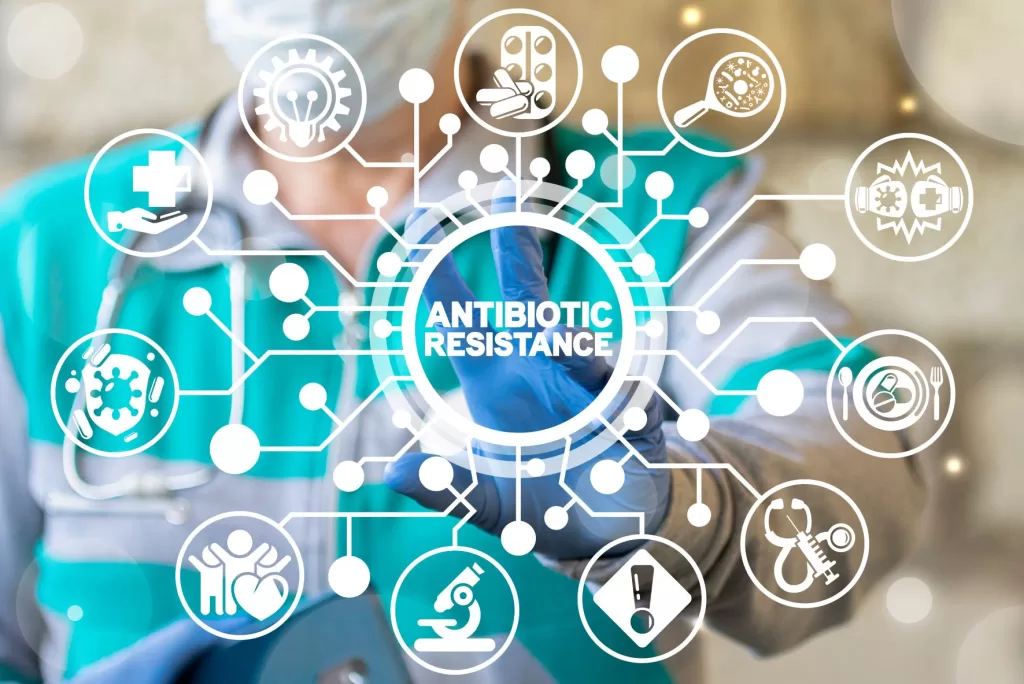The global campaign for World Antibiotic Awareness Week (WAAW) highlights a growing health and socioeconomic crisis. Running from 18-24 November, this year’s WAAW theme, “Educate. Advocate. Act Now,” reflects a call for increased awareness and coordinated action across health sectors.
In South Africa, antimicrobial resistance (AMR) presents a severe challenge, threatening public health, food security and economic stability. AMR arises when bacteria, viruses, fungi and parasites no longer respond to antibiotics or other antimicrobial agents, making the infections difficult and in some cases, impossible to treat. According to the World Health organisation (WHO), this increases the risk of diseases spreading, along with severe illness and death.
As Elani van Zyl, Sales and Marketing Manager for Pharma Dynamics’ Hospital Division explains, “When common infections become difficult or even impossible to treat, it leads to prolonged illness and higher mortality rates.”
She emphasises that, without prompt intervention, the spread of drug-resistant infections will only worsen, further straining SA’s health system.
The magnitude of AMR is starkly illustrated in recent statistics. A study from the Global Research on Antimicrobial Resistance (GRAM) Project, published in The Lancet1, highlights an alarming trajectory: antibiotic resistance has been directly responsible for at least one million deaths each year since 1990 and this figure is rising. By 2050, experts predict AMR could contribute to 39 million deaths globally if left unchecked – a number equivalent to three lives lost every minute.
South Africa is no exception. The country’s challenges are compounded by high rates of infectious diseases such as tuberculosis, which increasingly show resistance to standard treatments. According to van Zyl, SA, like many other low- and middle-income countries, faces a disproportionate AMR burden, largely due to antibiotic misuse or overuse and widespread usage in agriculture.
In response to the escalating threat, the WAAW calls on health professionals and the general public to deepen their understanding of AMR and its implications.
“Education is fundamental,” says van Zyl. “Every South African, from healthcare workers to farmers to ordinary citizens, must understand the role they play in reducing AMR risks, whether it’s through responsible antibiotic use or infection prevention practices.”
Advocacy is another critical element. The WHO and national health agencies urge stronger political commitment and resource allocation to combat AMR. As van Zyl notes, “Without concrete government support and policy change, the fight against AMR will falter.” In September 2024, the United Nations General Assembly convened a high-level meeting on AMR, setting the stage for further dialogue and renewed commitments worldwide.
Finally, the call to action highlights the urgency of immediate and sustained efforts. Health professionals and institutions are encouraged to implement and strengthen infection prevention and control (IPC) measures, including new vaccines, improved access to water and sanitation, and more investments in diagnostics and training across health systems.
The effects of AMR in SA extend beyond health to economic implications. It can lead to higher operational costs, as treating drug-resistant infections is costlier, which will require longer hospital stays and increase demand for diagnostic services.
AMR also threatens sectors like agriculture. Antibiotic overuse in livestock farming accelerates resistance, which can affect both animal and human health. Ensuring that veterinary practices also align with AMR-reduction strategies is critical to preventing the spread of resistant strains across species and to humans.
The National Department of Health has been working on a National Action Plan to address AMR, with an emphasis on strengthening surveillance systems, improving diagnostic capabilities and enhancing public awareness. However, van Zyl believes more is needed to close the gaps. “With drug resistance increasingly threatening every community, collective action is essential. The success of SA’s response hinges on the involvement of all sectors – government, healthcare, agriculture and the general public.”
As individuals, the public can contribute greatly to combating AMR by practicing responsible antibiotic use. “Only use antibiotics when prescribed by a healthcare professional,” van Zyl urges.
“It’s important to complete the full course of treatment to prevent resistant bacteria from developing.” Simple hygiene practices, such as regular handwashing, also help reduce the spread of infections.
As World Antimicrobial Awareness Week raises the alarm on AMR, every South African is encouraged to play their part. Through increased awareness, stronger policies and personal responsibility, South Africa can help stem the tide of antimicrobial resistance, ensuring a safer, healthier future for all.





























